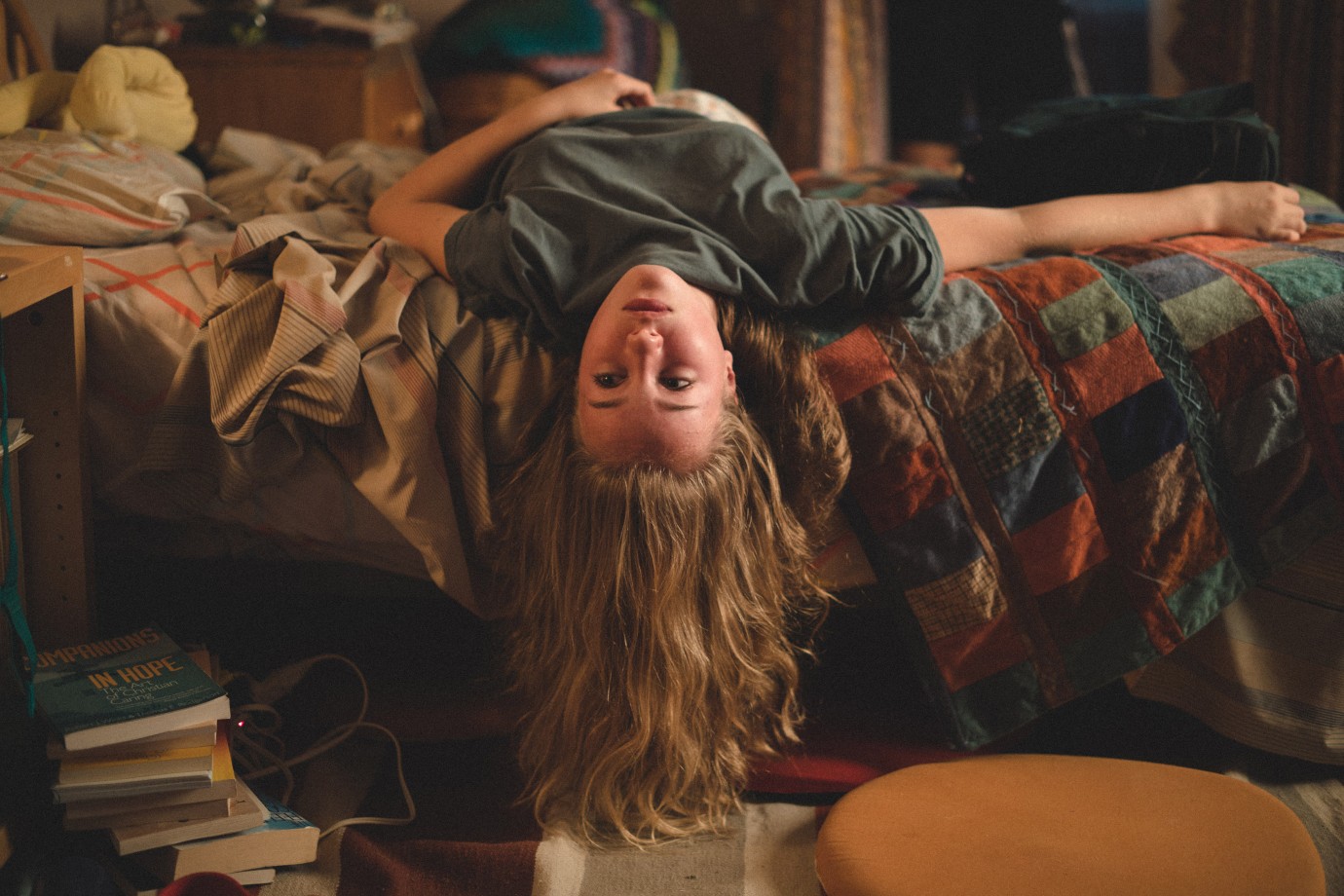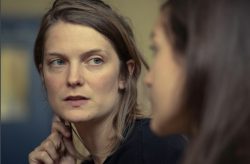Berlinale: Une Colonie

An interview with Director Geneviève Dulude-De Celles about her film Une Colonie
Winning the Generation KPlus Crystal Bear for Best Film at this year’s Berlinale, Une Colonie, directed by Geneviève Dulude-De Celles, tells the coming-of-age story of Mylia as she enters her first year of high school. The story is wonderfully depicted by several young actors—many of whom make their debut here—such as Emilie Bierre as Mylia, Irlande Côté as her younger sister Camille, and Jacob Whiteduck-Lavoie as Jimmy, a boy from the Abenaki Reserve they befriend. Dulude-De Celles works a quiet pacing into the film compelling us as an audience to linger in some of the awkward and difficult moments of growing up, as Mylia tries to figure out who she wants to be in her new world.

In this interview, director/writer Dulude-De Celles talks about finding and working with the cast of the film and her decision to depict more of the story as “non-said” through characters’ actions.
The youth in the film are incredible actors. Can you talk about finding them and working with them?
Geneviève Dulude-De Celles: It took us five months to find the actors. Eventually, we decided to go outside of the casting agency process to find new talents.
For two months, we focused on a lot of rehearsals and coaching together since for several of them, it was their first experience on a film set. Those rehearsals made them more comfortable and it gave us time to create a real complexity between the characters. I had a specific strategy for the actors—I would discuss the script deeply with some actors (the main protagonist, for instance) and then I didn’t give the script to other actor (to make sure the actor knows as little as their character). I used improvisation to give more spontaneity to the scenes.
The scene in the bathroom with Mylia and Vincent is so uncomfortable to watch, but feels important in the film, especially in the midst of our current conversations on consent. Can you talk about that?
Dulude-De Celles: When we shot it, we made some clear boundaries so it was done with respect. In the film, there is a mix of different things: it’s Mylia who brings Vincent into this situation, and he interprets it as a sign of interest. But then things change, and Mylia realizes she doesn’t want to be there. So it’s on the fine line of consent. A complicated situation.
I couldn’t help but wonder how the faux gun scenes would play somewhere like America where youth violence is all too real. Can you talk about the intention of these scenes?
Dulude-De Celles: This symbol for me is not that violent coming out from the character of Mylia—it’s more just play. I was inspired by a film of Lucian Pintilie (The Oak). For me, it was a tribute to that film which was important for me. The idea was also to represent Mylia as a hunter (as Jimmy used to say) and, in a more abstract way, to represent her desire to break free.

This film is an unusually quiet film—it’s almost as if the point is for us to imagine what’s going on in her head. Can you talk about that method of writing and directing?
Dulude-De Celles: I don’t like to reveal too much through dialogue. I prefer the “non-said” so the viewer must guess what is going on. I think we can get easily what’s happening in Mylia’s mind. And in reality, I don’t think this character would be the kind to speak out loud and verbalize her feelings; she would keep it to herself.
How did the screenings go at Berlinale?
Dulude-De Celles: We had a beautiful exchange with the audience at Berlinale, and we sold out the 1,018 theater for our premiere! We felt that the public enjoyed our movie and people came to us after and said they recognized themselves in the character. We learned at the end of the festival that we won the Crystal Bear for Best Film in our category—that was fantastic!
Une Colonie premiered at Berlinale in February 2019, and it will screen in Sweden at the BUFF Film Festival in March 2019. Follow them on their Facebook page.
